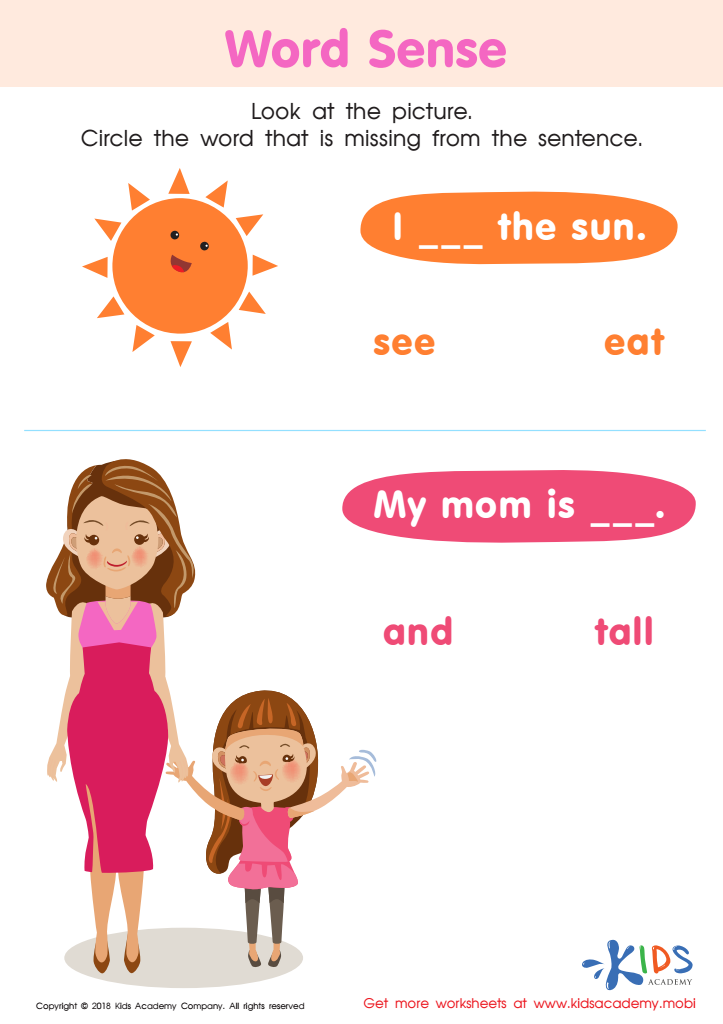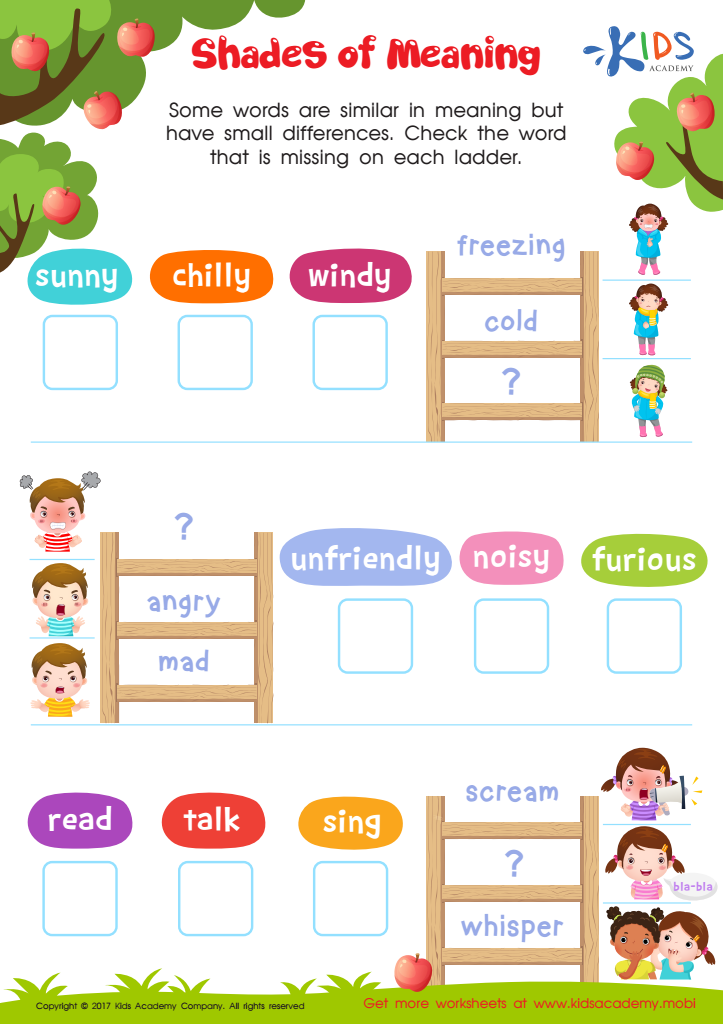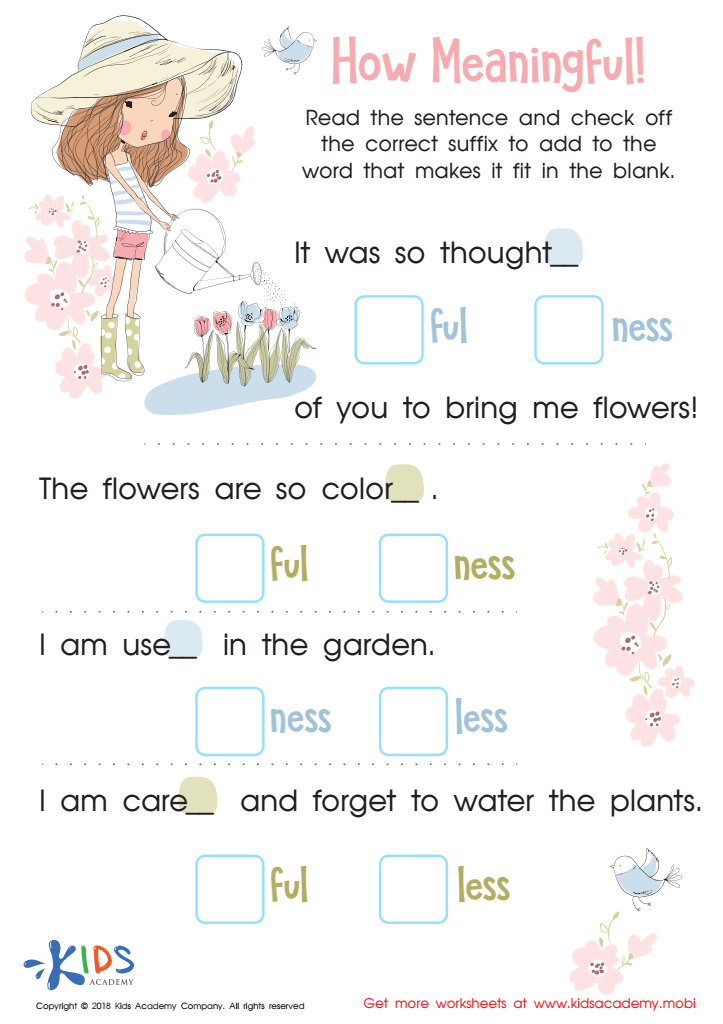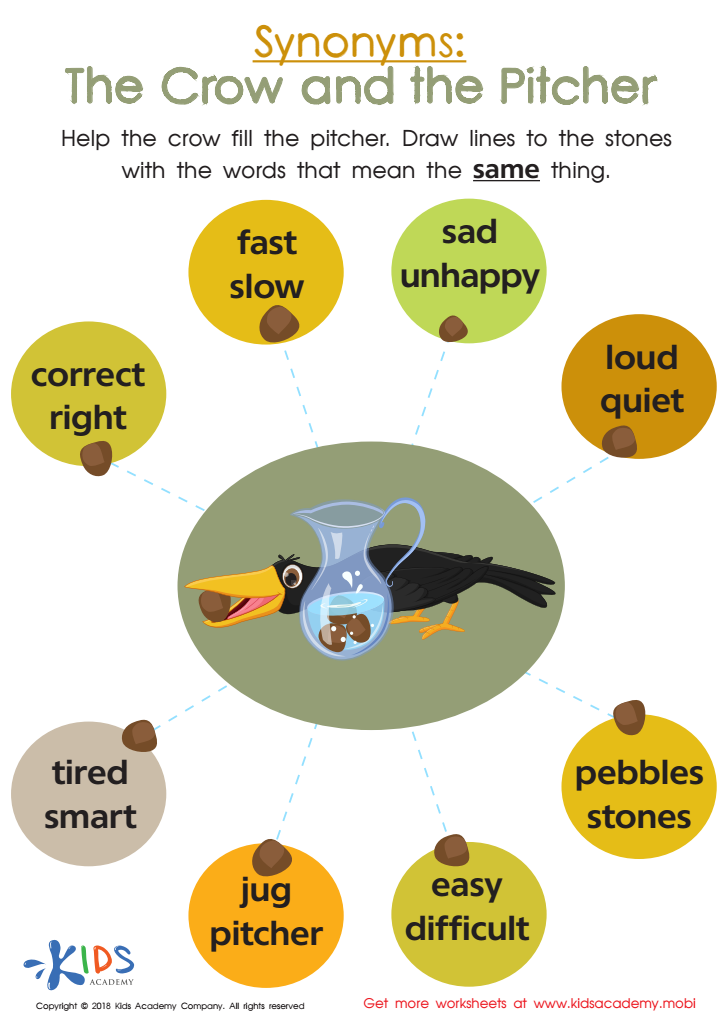Understanding synonyms Worksheets for Ages 6-8
5 filtered results
-
From - To
Introduce your young learner to the world of synonyms with our specialized worksheets designed for ages 6-8. These engaging activities help children understand and identify words that share similar meanings, enhancing their vocabulary and reading comprehension skills. Our printable worksheets provide fun and interactive exercises, including matching games, fill-in-the-blanks, and word mapping, ensuring that learning remains enjoyable. Ideal for both classroom and at-home use, this resource offers an excellent foundation for developing strong language abilities. Visit Kids Academy to access our comprehensive collection of synonym worksheets and support your child's linguistic growth today.


Word Sense Worksheet


Shades of Meaning Worksheet


How Meaningful! Worksheet


The Crow and the Pitcher Synonyms Worksheet
Understanding synonyms is crucial for children aged 6-8 because it enhances their vocabulary and overall language skills. At this developmental stage, children are expanding their word knowledge, and being familiar with synonyms helps them express themselves more precisely and creatively. For example, instead of always using the word "happy," a child might also use "joyful" or "cheerful," making their communication richer and more nuanced.
Moreover, a strong grasp of synonyms aids in reading comprehension. When children encounter an unfamiliar word while reading, knowing its synonym can help them infer its meaning without pausing the reading flow, fostering a smoother and more enjoyable reading experience. This, in turn, promotes a love for reading, which is critical for academic success.
Teachers and parents should also care about synonyms because they facilitate better writing skills. When children learn to use different words to convey similar meanings, their writing becomes more engaging and varied. This skill not only improves their ability to convey ideas but also lays the foundation for advanced writing abilities.
In addition, understanding synonyms can boost cognitive skills like memory and critical thinking. It encourages children to make connections between different concepts and explore subtle differences in meaning, preparing them for more complex language tasks as they grow.


 Assign to My Students
Assign to My Students


















